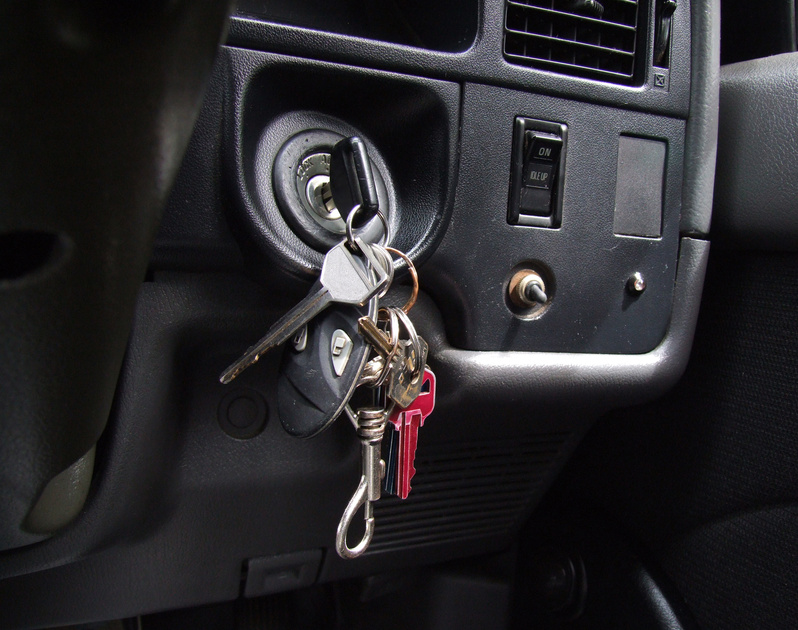

Facing a DWI charge in Louisiana can feel overwhelming, especially when you learn about requirements like ignition interlock devices that may drastically alter your daily routine. These court-mandated devices, which prevent your vehicle from starting if alcohol is detected on your breath, represent just one of many complex legal consequences you may encounter following a DWI arrest.
At the John D. & Eric G. Johnson Law Firm, we understand the intricacies of Louisiana’s DWI laws and how ignition interlock requirements can impact your life. Attorney Eric Johnson has been defending clients throughout Minden and north Louisiana since 1993, successfully negotiating reduced sentences and helping clients navigate these challenging legal waters with confidence.
What Are Ignition Interlock Devices?
An ignition interlock device (IID) is a breathalyzer mechanism installed directly into your vehicle’s ignition system. Before you can start your car, you must blow into the device, which measures your blood alcohol concentration (BAC). If the device detects alcohol above a preset limit—typically 0.02% in Louisiana—your vehicle will not start.
These devices require more than just an initial breath test. While driving, the system will periodically prompt you for “rolling retests” to ensure you haven’t consumed alcohol after starting your vehicle. If you fail to provide a sample or if alcohol is detected during a rolling retest, the device will log the violation and may trigger your car’s horn and lights until you safely pull over and turn off the engine.
The devices also maintain detailed records of all breath tests, violations, and tampering attempts. This data gets downloaded regularly and reported to the court and your probation officer, making compliance crucial for maintaining your driving privileges.
When Louisiana Courts Require Ignition Interlock Devices
Louisiana law mandates ignition interlock devices in specific DWI situations, with requirements varying based on your BAC level and prior offenses. For first-time offenders with a BAC between 0.15% and 0.20%, courts typically require IID installation for six months. If your BAC exceeded 0.20%, you may face a one-year requirement.
Second and subsequent DWI offenses carry more severe interlock requirements. Second-time offenders usually must install the device for two years, while third-time offenders face four-year requirements. These timeframes begin after you regain your driving privileges, not immediately following your arrest.
Courts may also order ignition interlock devices as part of plea agreements or hardship license approvals. If you need to drive for work, medical appointments, or other essential activities while your license is suspended, obtaining a hardship license often requires IID installation as a condition of the restricted driving privilege.
Costs and Installation Process
Installing and maintaining an ignition interlock device involves several expenses you must budget for throughout the required period. Initial installation typically costs between $70 and $150, depending on your vehicle type and the service provider you choose.
Monthly monitoring fees range from $60 to $80, covering device maintenance, data downloads, and reporting to the court. You’ll also pay for periodic calibration appointments, usually required every 30 to 60 days, which cost approximately $20 to $40 per visit.
Additional costs may include removal fees once your requirement period ends, typically $50 to $100. If you need the device installed on multiple vehicles, each installation carries separate fees. Violation fees for failed tests or missed appointments can add $25 to $50 to your monthly costs.
Potential Consequences of Violations
Violating ignition interlock requirements can result in serious legal consequences that extend your device requirement period and jeopardize your driving privileges. Common violations include failing breath tests, missing scheduled calibration appointments, or attempting to tamper with or bypass the device.
When violations occur, the device automatically records the incident and reports it to the court and your supervising officer. Depending on the violation’s severity and frequency, you may face extended IID requirements, additional fines, or complete license suspension.
Courts take tampering attempts particularly seriously. Having someone else blow into the device, disconnecting the system, or trying to circumvent its operation can result in immediate license revocation and additional criminal charges. These violations often lead to jail time and extended probation periods.
Multiple violations typically trigger progressive penalties. Your first violation might result in a warning or brief license suspension, while subsequent violations can extend your IID requirement by months or years beyond the original timeframe.
Get Help With Your Louisiana DWI Case
Navigating Louisiana’s complex DWI laws and ignition interlock requirements demands experienced legal guidance from someone who understands how to protect your rights and minimize these life-altering consequences. We recognize that every client faces unique circumstances, and we work diligently to achieve the best possible outcome for your specific situation.
Attorney Eric Johnson has successfully defended clients throughout north Louisiana for over three decades, earning respect from prosecutors and judges through his thorough case preparation and skilled negotiation. As a member of the National Association of Criminal Defense Lawyers and the Louisiana Association of Criminal Defense Lawyers, he brings comprehensive knowledge of DWI defense strategies that may help reduce or eliminate ignition interlock requirements in your case. Contact our office today at (318) 377-1555 or reach out through our contact form to discuss your DWI charges and explore your legal options.
